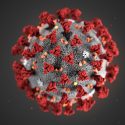COVID-19 stories and experts: Virus mutation, vaccine, surge, handling the holidays
The following UW–Madison stories and experts are available on current topics surrounding the COVID-19 pandemic. See more stories here.
Mutation in COVID-19 virus in Europe led to its domination worldwide
In late 2019, the SARS-CoV-2 virus emerged in China and quickly spread across the world, leading to the COVID-19 pandemic. In early 2020, that virus mutated, likely in Europe, and that mutation is now the dominant form of the virus across the globe.
A new study published this week in Science by a team of researchers in the U.S. (UW-Madison) and Japan shows that the mutant virus, called D614G, is more easily transmitted and grows better within hosts, likely aiding its dominance. Read the full story here.
Contact: Kelly Tyrell, ktyrrell2@wisc.edu
How women faculty navigate the pandemic world
Biomedical engineering professor Kristyn Masters says the COVID-19 pandemic has disproportionately impacted working women, including women in academia. She, along with fellow UW–Madison member, developed a list of 10 suggestions for women principal investigators – and all women in the workforce – to better navigate the juggling act brought on by the pandemic.
Contact: kmasters@wisc.edu
COVID-19 patient received double lung transplant
Four months after testing positive for COVID-19, Carmen Lerma became the first person in Wisconsin to undergo a double lung transplant because of the virus. Doctors at UW Health are optimistic about her chances of returning to the life she had prior to her diagnosis.
Contact: Emily Kumlien, ekumlien@uwhealth.org
COVID-19 EXPERTS AVAILABLE
COVID-19 surge in Wisconsin and the upper-Midwest
Patrick Remington is an emeritus professor of Population Health Sciences and Director of the Preventive Medicine Residency Program at the School of Medicine and Public Health. He is a medical doctor and a former CDC epidemiologist. He is available for interviews about the COVID-19 surge in Wisconsin and the public health response.
Remington can discuss outbreak investigations, public health and community health, epidemiologic research and health and risk communications.
Contact: ahellpap@uwhealth.org
COVID-19 vaccine news
David O’Connor, an expert on the virus that causes COVID-19, can discuss news that not one, but two late-stage COVID-19 vaccines seem highly effective. “The similar performance of both vaccines means that we now know that the region of the virus they target is good; this gives hope that other vaccines targeting the same fragment will work too,” he says.
Contact: dhoconno@wisc.edu
Betsy Nugent, chief clinical research officer and director of clinical trials development and accreditation at UW–Madison and UW Health, and William Hartman, principal investigator for the COVID-19 vaccine AstraZeneca clinical trial, can talk about vaccine trials and development.
Contact: Betsy Nugent, enugent2@wisc.edu; William Hartman EKumlien@uwhealth.org
How to handle the holidays
Ajay Sethi, associate professor in the School of Medicine and Public Health and an expert on infectious disease epidemiology, is available for interviews about how to safely handle the upcoming holiday season in the midst of a COVID-19 surge.
Contact: ajay.sethi@wisc.edu
De-stressing from the pandemic and the election
Experts from the Center for Healthy Minds are available to discuss how to we might be able to de-stress after an election held in the midst of a global pandemic. Larissa Duncan, Elizabeth C. Davies Chair in Child & Family Well-Being and Associate Professor of Human Development & Family Studies, is available for interviews. Duncan’s topics include calming the body after periods of stress and health and well-being for families.
Contact: larissa.duncan@wisc.edu
Richard Davidson is the William James and Vilas Professor of Psychology and Psychiatry and founder of the Center for Healthy Minds. He is available for interviews and advice on de-stressing, the neuroscience of mindfulness, and forgiveness.
Contact: https://centerhealthyminds.org/connect/media-requests
Cortland Dahl is a research scientist at the Center for Healthy Minds. He is available to discuss de-stressing and compassion. Matt Hirshberg, postdoctoral research associate, Center for Healthy Minds. He is available for interviews on the science of forgiveness. Pelin Kesebir, assistant scientist, Center for Healthy Minds. She can discuss positive psychology.
Contact: Cortland Dahl, cortland.dahl@wisc.edu; Matt Hirshberg, hirshberg@wisc.edu; Pelin Kesebir, kesebir@wisc.edu
Tags: covid-19, media tips


